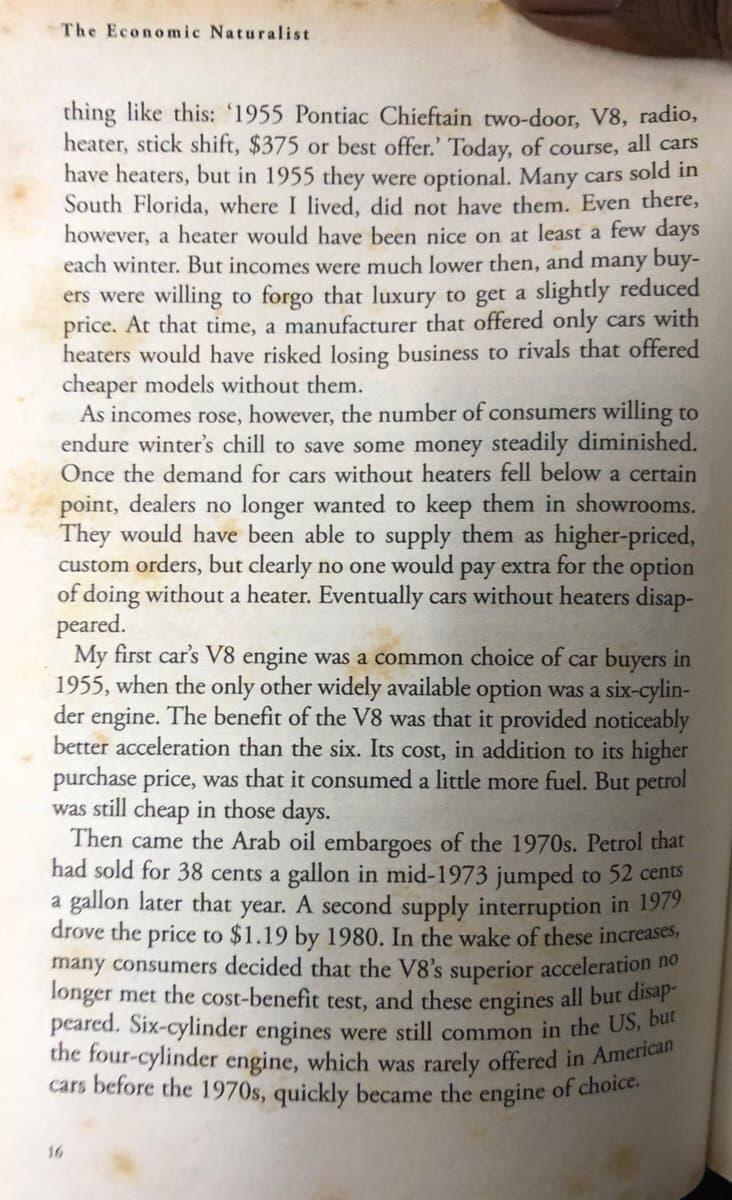🧵 View Thread
🧵 Thread (12 tweets)

The Economic Naturalist, Robert Frank. Can’t remember where I got this but it’s been in my shelf for ages, seems like a Freakonomics type book. Let’s dive in https://t.co/m5JGpqyync
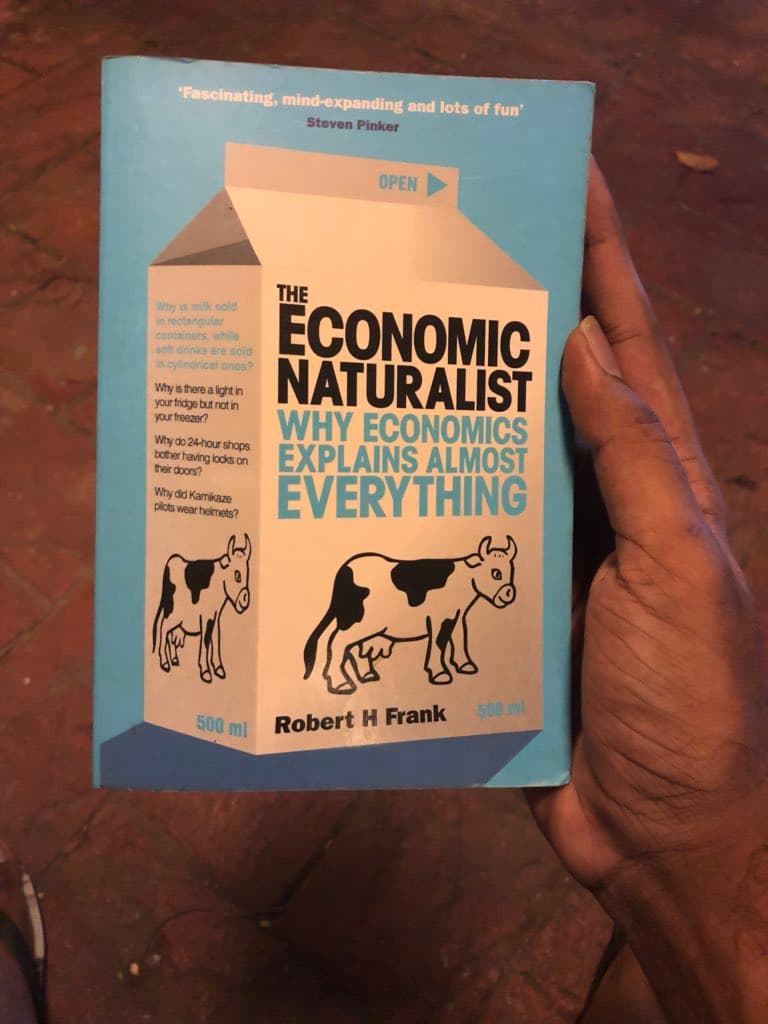

Book opens with a joke about how learning the details of technicalities is ineffective when learning a new language. Frank compares 4 years of Spanish (ineffective) vs 13 weeks of rudimentary Nepalese with the Peace corp, mimicking children (effective)

This radical contrast informed his economic pedagogy. Learning economics is like learning a language; it’s important to start slowly and see each idea in multiple contexts. “If you find this way of learning superior, tip your hat to my Nepali language Instructors.”

Why do keypad buttons on drive-up cashpoint machines have Braille dots? Most users are drivers, and effectively none are blind. Simple answer: it’s cheaper for keypad makers to make them all the same. The Braille doesn’t harm sighted users (if it did, extra expense = justified) https://t.co/ZBj6jrvH4v
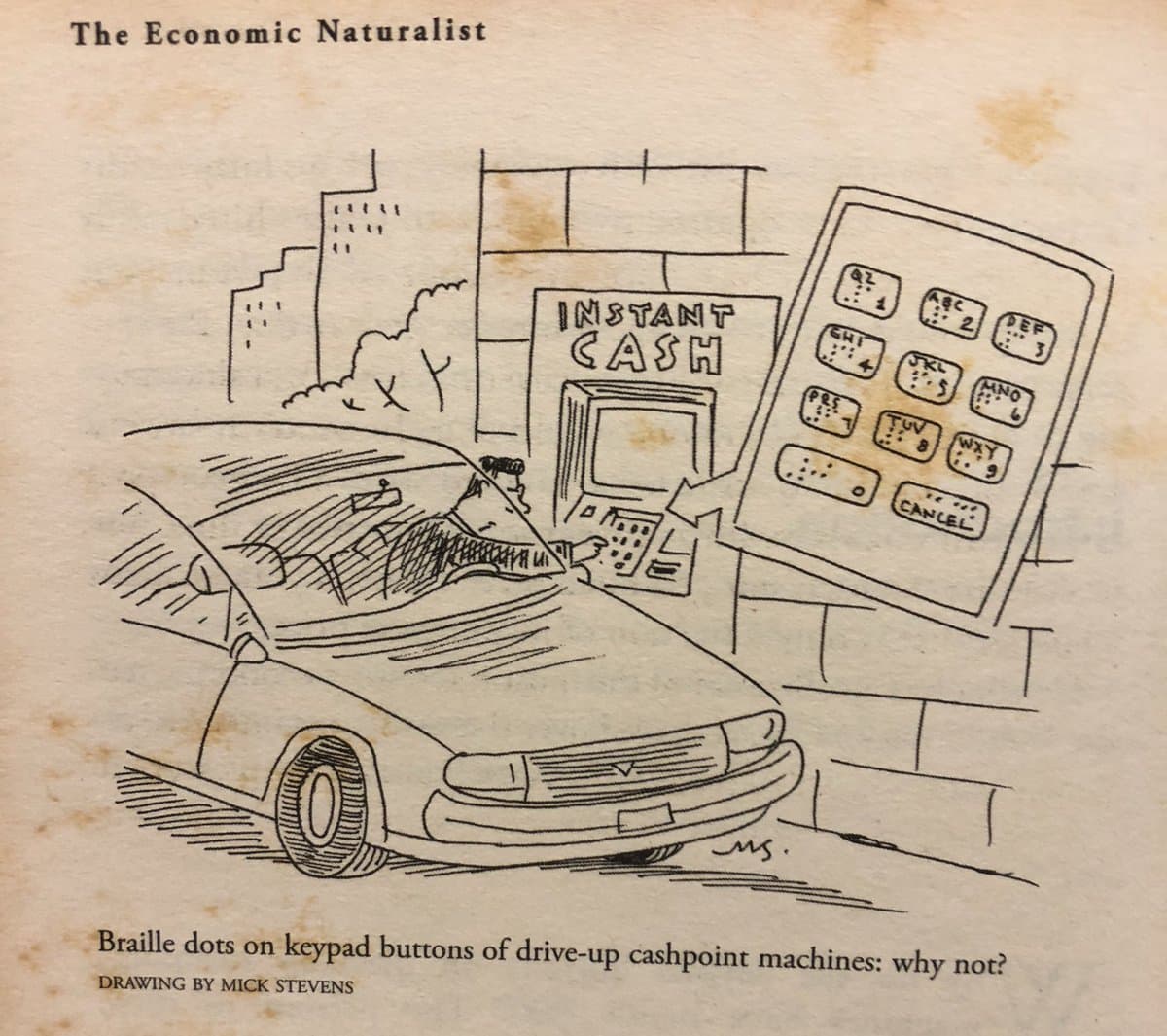

Why do brides buy expensive gowns if they’re never going to wear them again, while grooms rent when they could buy and re-wear? A gown-rental company would have to carry a huge stock - 40-50 in each size, and each would be rented infrequently. Storage costs would kill them

Each gown would be rented very infrequently. In contrast, since grooms get to settle for a standard style, each suit gets rented more frequently - so the rental cost gets to be lower. (Theoretically a plain bridal gown could be rented for cheap, but few want obvious rent-a-gowns)

When 270 econs undergraduates were posed a straightforward question about opportunity cost, only 7.4% of them got it right - worse than 25% if they had all picked at random 😂 17.2% of 88 non-econs students and 21.6% of 199 professional economists (!!!) got it right https://t.co/mgnqLC80j5
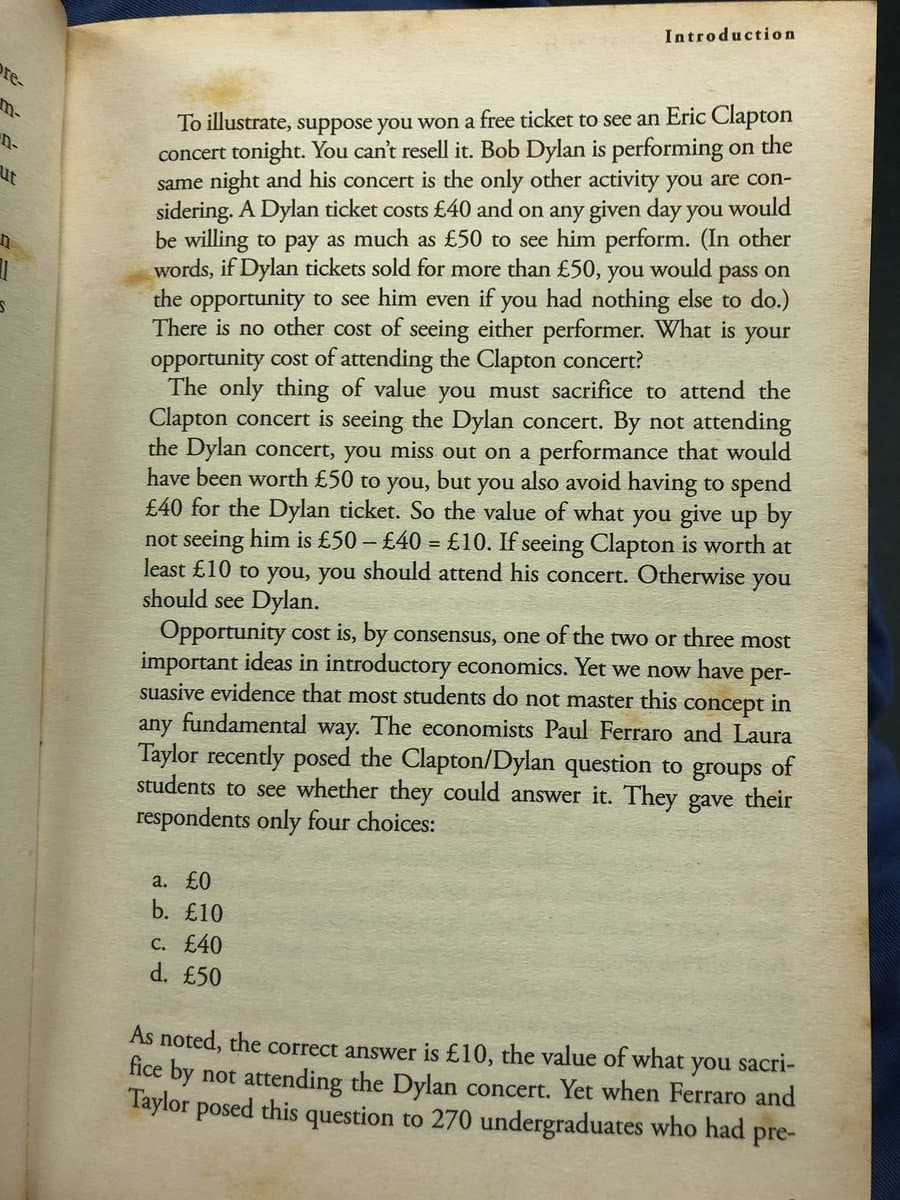

Frank takes a moment to talk about sticky narratives. Eg: Sexual dimorphism explains how males are bigger than females in polygynous species, while roughly the same size in monogamous species. Simple, memorable, intuitive. He argues that economics needs stickier narratives

Frank believes in the power of narratives, and challenges his students to come up with interesting questions ✅ it makes them consider multiple options ✅ they have more fun and put in more effort ✅ they’re likelier to share it outside the classroom where “it is yours for ever”

On the cost-benefit principle. Sometimes people get tripped up because they think in percentages - eg saving $5 on a $10 purchase vs saving $5 on a $1,205 purchase. We see how people are complicated (and what an amazing teacher Frank is. I’m jealous of his students) https://t.co/BuexEhw62E
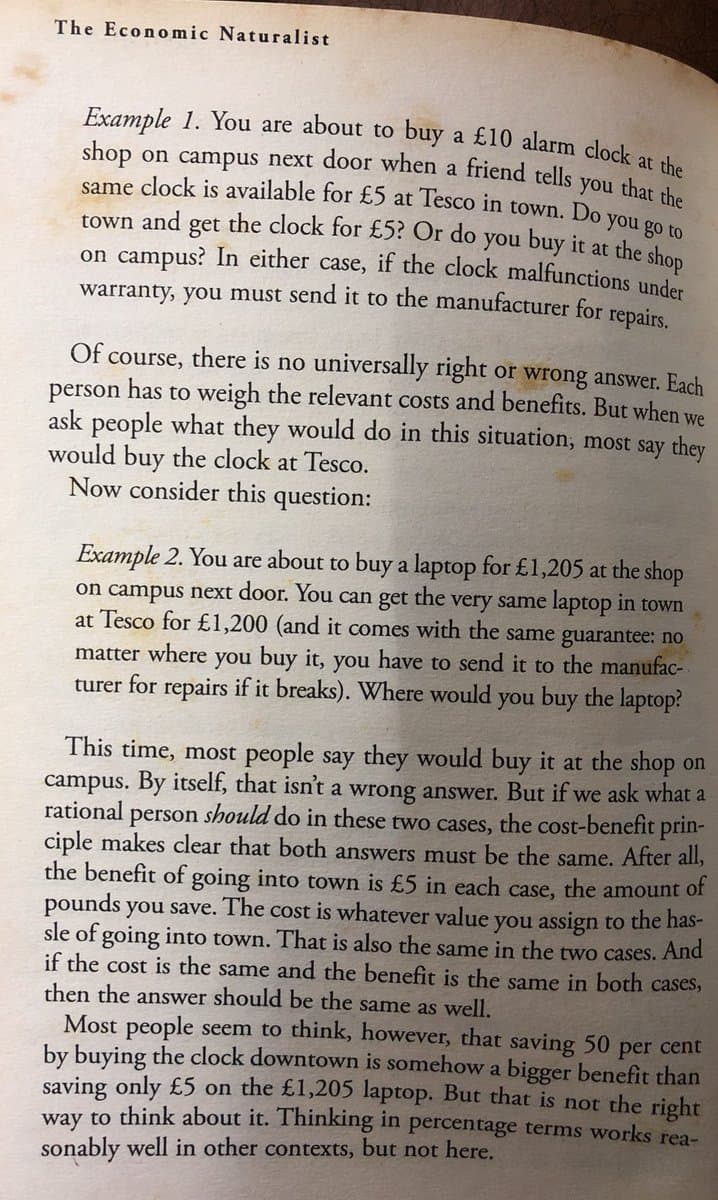

Frank tells a really fascinating story about his car in 1961 and how cost-benefit analysis (from both the consumer and manufacturer POVs) explains how features like car heaters and V8 engines have come and gone. This feels like analytical genius (with benefit of hindsight ofc) https://t.co/hIuC9Lloy4
